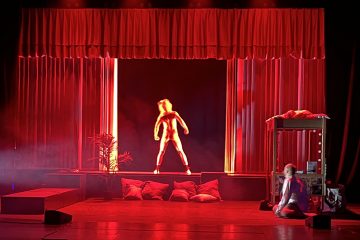Despite assuming office less than a year ago, Rodrigo ‘Rody’ Duterte has managed to equally shock and intrigue global society through his strongman, unapologetically brash persona that has provoked world leaders and institutions alike. Duterte has however gained global notoriety for his hardliner – nearing draconian – crackdown on the illegal drug trade that has thrived in the Philippines. The rise of President Duterte has coincided with a global wave of populism that has taken root in international politics, and while similarities do exist between him and other populist leaders, Duetere’s leadership distinguishes itself with its distinctly Hobbesian inspired approach to social order.
While no one great thinker in history can be accredited with founding the tenets of political thought, Thomas Hobbes is universally revered for his defining works and contributions in shaping political philosophy. Hobbes’ ground-breaking Leviathan, provides a detailed account into the intricate process of establishing social order from a chaotic and anarchic state (in Hobbes’ case the English Civil Wars). Hobbes, horrified by the bloodshed and brutality that the war brought, sought to develop a theory that necessitated the presence of an absolute authority tasked with maintaining social order. Civil peace, according to Hobbes, is best achieved through the establishment of a social contract between the commonwealth (the citizens that make up a society) and an absolute authority.
How then can Duterte’s rise and leadership conjure up notions of a Hobbesian order? Well I feel in many ways. In Leviathan, Hobbes claims that it is human nature to be self-interested and if left unchecked and ungoverned, individuals would live in a state of perpetual war or a ‘state of nature’. Individuals living in this state are not bound by any obligations but are also not guaranteed any rights and as such notions of right and wrong, justice and injustice do not exist. Understandably, life in this state of nature is – as he famously put it – “poor, nasty, brutish, and short”. While describing the Philippines prior to Duterte’s rise as perfectly inhabiting this ‘state of nature’ may be stretching it a little, there is nevertheless merit to this argument. The previous administrations in the Philippines, by in large turned a blind eye to the drug lords that controlled the lucrative drug trade in the region. After years of marginalization and neglect, many Filipinos were forced to accept a reality where crime was rampart, impunity was the norm and corruption permeated all sectors of society. In this reality, one cannot help but feel that life in this state was ‘poor, nasty, brutish and short’.
It is specifically Duterte’s stance towards crime that evokes comparisons to Hobbes. Duterte has very much subscribed to the Hobbesian idea of justice, holding fast on the importance of the social contract and the consequences associated with breaking it. His current stance on the drug trade and the crime and corruption associated with it, is very much a consequence of his previous position. During his tenure as Mayor of Davao City, Duterte built his reputation challenging major issues such as crime and corruption, resulting in significant reductions and making Davao one of the safest cities in the Philippines. Duterte has maintained this stance at a national level, promising to kill 100,000 criminals during his presidential tenure, earning him the fitting nickname “The Punisher”. Duterte himself has been vocal in encouraging his own citizens to shoot and kill drug dealers who resist arrest and has repeatedly been linked to the use of ‘death squads’ as a crime control method. Duterte’s argument is simple, follow the law or risk being punished by it.
Hobbes argues that the only way for the commonwealth to obtain peace is by bestowing an absolute authority the right to rule over them. In doing so they enter into a social contract that is enforced, by fear of punishment, by the sovereign or ‘Leviathan’. The sovereign authority is however tasked with protecting and providing security for the commonwealth, failure of which would extinguish the commonwealth’s duty to obey and therefore break the social contract. Duterte, by tackling the problems facing the Philippines, has presented himself as an actor willing to restore social order. More importantly though, Filipinos have shown, by voting him in as President, to be willing to exchange certain freedoms for an increased sense of security and order. In this sense, Duterte can be seen to have assumed the role of absolute sovereign, a position that permits his iron rule as long as it in turn provides the security and order so many Filipinos have been missing. Dutrete’s rhetoric has rigorously warned that should drug use, crime and corruption be allowed to endure unfettered, the country will inevitably roll back into a state of nature.
While his brutal and inhumane stance on drug dealers has no doubt lead to untold suffering, it has nevertheless shown to be effective in establishing the peace synonymous with Hobbes’ Leviathan state.
Overreliance on using seemingly outdated theories to explain and understand contemporary phenomena may be unwise. However, it is nevertheless difficult to deny the similarities between Rodrigo Duterte’s stance on illegal activity and Thomas Hobbes’ notion of social order. Duterte may very well be emerging as a modern day Leviathan, which may be exactly what the Philippines needs. The human toll this process may take is however less clear but it should not be forgotten that Duterte was democratically elected, that he represents the sentiments of the Filipino people and that behind every opponent that cries foul of his methods, there is a staunch supporter grateful for the order and stability created through his actions.



3 425 kommentarer
Kommentarer är stängda.